At a glance

Helpshift delivers a versatile customer service solution to help brands care for their customers more effectively, while boosting customer satisfaction and engagement.

As a provider of in-app customer service and user support solutions, experience is critical and they suffered from scale and accuracy challenges with legacy NoSQL.

By providing seamless migration from MongoDB, YugabyteDB allowed Helpshift to scale to meet rapid increases in demand and deliver highly available apps.
Helpshift is a mobile-first customer service platform that delivers a superior in-app help experience for many of the world’s top mobile apps

Helpshift is a mobile-first customer service platform that delivers a superior in-app help experience for many of the world’s top mobile apps and games. Whenever users need help they can get it right in the app with an always-on help experience that delivers immediate, automated solutions to many issues.
Companies such as Zynga, Microsoft, Viacom, and hundreds of other leading brands use the Helpshift platform to provide messaging-first customer support. Helpshift is installed on two billion devices worldwide and serves more than 820 million active consumers monthly.

Challenges
Capturing, storing and providing rapid access to data is at the heart of what Helpshift does. In order to ensure a seamless experience for both the end user and their clients using the 2-sided platform, Helpshift stores a variety of data that needs to be accurate but also requires some level of flexibility based on the type of client and interaction being supported.
As their company has grown, they have had to evolve and change their data models to keep up with new use cases and different customer requirements. For years the team relied on a traditional NoSQL database to support their offering but they increasingly faced a number of key challenges:
- Scalability limitations: Helpshift did not have a sharded infrastructure so scaling the environment was a very manual and time consuming process.
- Data consistency: The existing implementation made it challenging to maintain consistent conversation data in one place that accurately reflected when actions happened and when information was shared.
- Data integrity: The lack of ACID guarantees of the existing datastore left the platform at risk of partially committed information at times.

Key Database Requirements
Faced with ongoing scalability problems, Helpshift decided to make a change. Helpshift explored options with its existing solution, MongoDB, as well as with a variety of distributed SQL offerings. After an extensive evaluation, YugabyteDB emerged as the natural solution for this use case thanks to its ability to meet these key requirements:
- Infinite Scalability: Helpshift never knows when customer usage may surge, so YugabyteDB gives them the ability to easily scale on demand while maintaining low latency.
- Built-in Availability: The native resilience capabilities of the distributed database allow Helpshift to confidently grow their business and provide assurances to their customers that the service will remain available.
- ACID Transactions: YugabyteDB delivers the ACID guarantees of traditional SQL systems while still providing the horizontal scalability of NoSQL systems.
- Geo-Distribution: With users all over the world, Helpshift can leverage a single logical database that can span the world with automatic sharding and intelligent rebalancing.
We contemplated the different databases that we currently had in production and some of the common distributed SQL databases. In the end, we determined that YugabyteDB provided us with the best solution.
Somya MaithaniSoftware Developer
See More from Helpshift
Watch Helpshift’s DSS Asia 2022 Discussion on their Journey from NoSQL to Distributed SQL
Do you want to migrate your legacy NoSQL databases to a modern Distributed SQL database? If so, then come learn from Helpshift’s experiences in moving from a NoSQL database to Distributed SQL.
Based on lessons learned in their journey, they will share their playbook that will help anyone make a smooth transition from NoSQL to Distributed SQL. The webinar will cover tradeoffs we made along the way in different areas like normalization vs. de-normalization and one
